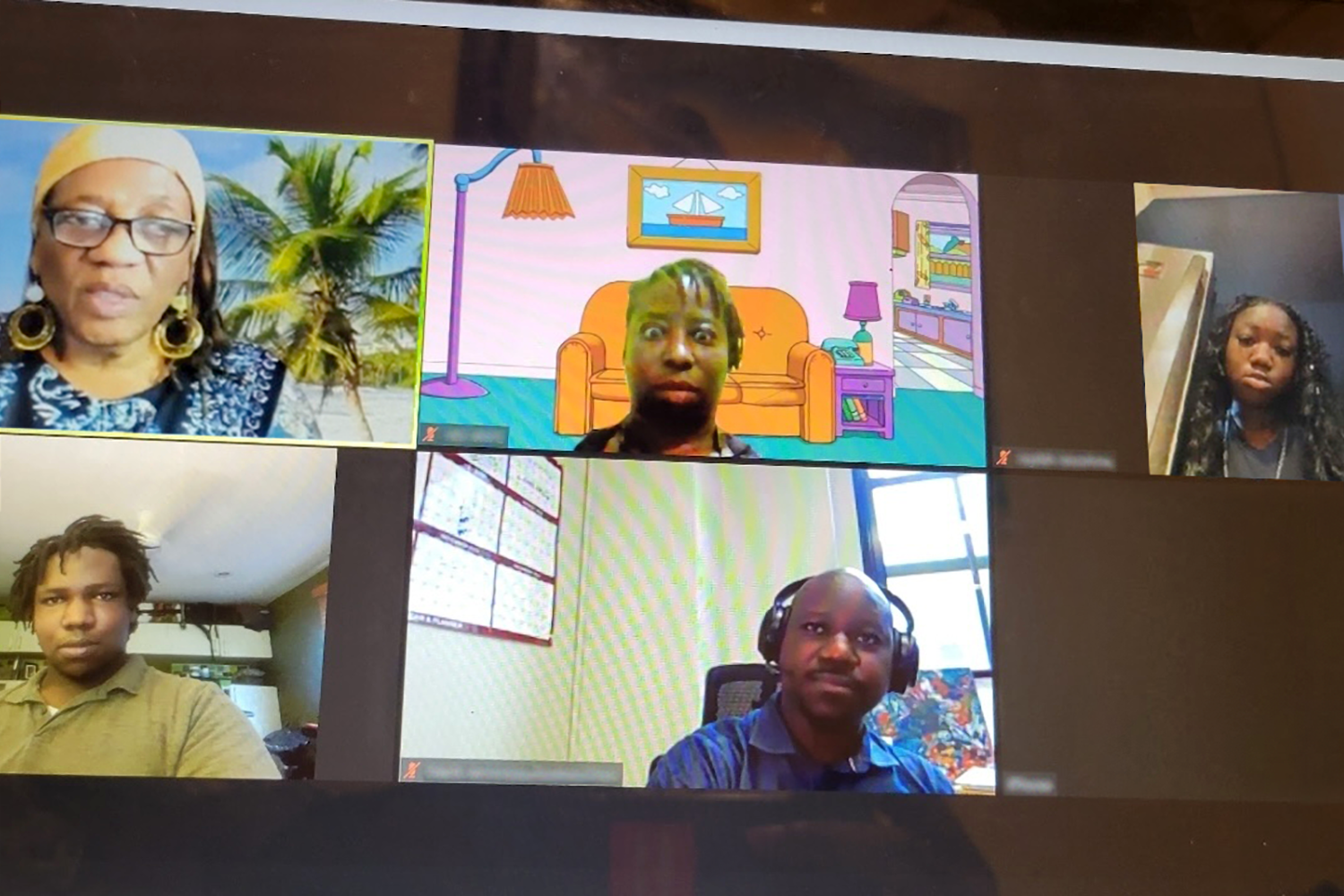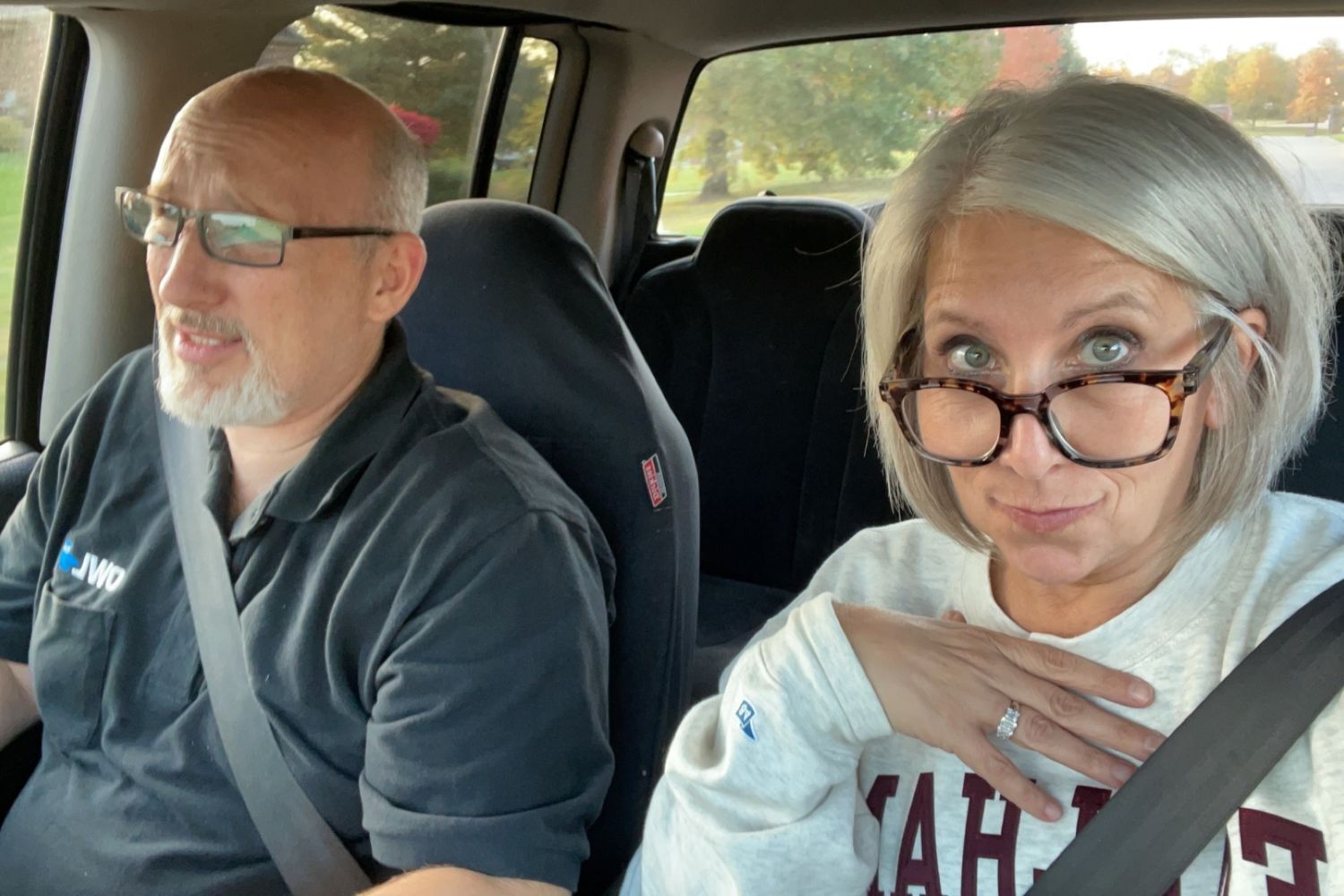
The joys of working for yourself as a woman in midlife
Ten years ago, I made a major career transition. After spending nearly two decades in marketing, I left my director-level role to accept a writing position on an editorial team that covered the digital marketing space. Instead of “doing” marketing, I wrote about it.
It was a dream come true and remains one of the best career moves of my professional life — topped only by my decision to quit that dream job seven years later. …
When your dream job turns into a nightmare
Fast-forward to pre-pandemic, and I struggled in my “dream job” as a writer. After a series of leadership changes, I found myself, at 46, reporting to a new hire who quickly turned my dream job into a nightmare. I spent all of 2019 interviewing for new jobs, but couldn’t land one to save my life. It was the most exhausting, demoralizing, and outright maddening year of my career.
By the start of 2020, I decided my best option was to formulate a plan that would allow me to take my career into my own hands as a freelance writer. I worked with a career coach. I saved enough money to cover at least three months of bills. I even landed my first client while still fully employed, and gave myself an April deadline to quit my job and go out on my own.
But then COVID-19 erupted and turned our lives upside down. With all the unknowns we faced, I hit the pause button on my freelance plans. Four months into the pandemic, not only was I still miserable at work, I was managing the added pressures that came with the pandemic. I was a mess.
Finally, midway through 2020 and a month out from my 47th birthday, I decided that it was all too much. The one thing I had control over was my career, so I quit my full-time job.
A whole new level of career satisfaction
Within two weeks of leaving my job, I landed enough client work to earn nearly double what I earned as a full-time employee. I was in control of my schedule. I got to choose who I worked with and, more importantly, who I wasn’t going to work with. The best part was that my clients trusted my opinions and valued my work.
I couldn’t believe it — quitting my job unlocked a whole new level of career satisfaction. How was I able to build an entire freelance business that was financially stable within a month? I attribute my success to the fact that I’d garnered a deep knowledge of the topics I covered, built a trusted network of professional peers, was a strong writer, and worked well with clients.
The question I still can’t answer: Why were my talents and professional experience not enough to land me a full-time role the year I spent searching for a new job?

The perils of working while female
Was I losing out on full-time job opportunities because I was nearing 50? I had stopped dying my hair in my mid-forties while still in love with my job. Did my silver locks impact my career advancement goals? It’s easy to internalize all the insecurities that come with a failed job search. It’s much more difficult to prove that my lack of job offers had anything to do with my age, but numbers don’t lie.
The reality is that only 10 percent of Fortune 500 companies are led by women CEOs. A report from the Rockefeller Foundation dating all the way back to 2016 revealed one in four Americans believed it was more likely that humans would colonize Mars than that half of Fortune 500 CEOs would be women. (Thanks to the current “race to space” happening among a select group of male billionaires, this data point may very well prove to be true in the coming decades. The irony is maddening.)
In 2022, researchers at MIT analyzed the career paths of 30,000 management-track employees for a large retail chain. The study found that women, on average, were 14 percent less likely to be promoted compared to their male counterparts, despite receiving higher performance ratings. Interestingly (but not at all surprising), women scored higher performance ratings than male employees, on average, but scored lower than men when it came to their “potential” ratings. This is an actual quote from one of the MIT researchers: “The result I found most depressing in the paper is the result in which women outperform their stated potential. Women have to hit a higher threshold of future performance in order to justify the same potential score.”
I’m confident that nearly every woman over 50 reading this understands how true the study’s findings are on an almost visceral level. That even when exceeding expectations at work, a woman’s ultimate potential as a leader is consistently undervalued.

A family affair at 50+ — should you start a business with family?
Joelle Nole never wanted to work for herself. But in 2018, going out on her own is exactly what she did when she decided to join Larj Media, the Seattle-based podcast production company founded by her sister Tina. Joelle had hit a professional impasse when a career advancement opportunity meant reporting directly to someone she knew would be an issue.
“I told him honestly that I would never be able to report to him, and in doing that, I essentially made it impossible for me to stay in the company,” said Joelle.
Fortunately, she already had been considering working with her sister as she neared the age of 50. In fact, on a hike with friends she had shocked herself when she said aloud that she should probably just quit her job and join her sister’s business.
“As soon as I said it out loud, I felt a physical response, like I’d been lit up or jolted and I felt lighter and energized by the idea.” Before actually making the leap, Joelle interviewed for a number of senior-level roles at top technology companies: “Google and Amazon both had me return for multiple rounds for multiple jobs, but I just wasn’t getting to the offer stage, which never happened earlier in my career.”
Now, after more than five years running Larj Media, Joelle says she feels more in control and secure than ever before. One piece of advice she has for younger women professionals: fight for the senior-level titles. She says that being an older woman in tech — or agencies that support tech companies — is impossible unless you have a VP role.
“I advise women to make sure they secure a senior-level title by age 40. Otherwise, they will be on a track that will minimize them as they get older and better at their craft, which is pretty infuriating,” said Joelle, who wishes she had been more aware of this reality when she was younger. “I never fought for a title. Foolishly, I fought for responsibility — go figure.”

“I advise women to make sure they secure a senior-level title by the age of 40. Otherwise, they will be on a track that will minimize them as they get older and better at their craft, which is pretty infuriating.”
— Joelle Nole
Why not start working for yourself now?
Jessica Farquhar Campbell, a leadership consultant with more than a decade of experience at a Fortune 500 company, tells me over email that she spent a year searching for a new job before going out on her own.
“I was ghosted by so many recruiters, even after I had gotten really far in the hiring process,” said Jessica, “I kept thinking, if I could just talk to someone and get in front of the right people, I could land something.”
After working with numerous external consultants over the years, Jessica had considered going out on her own as a way to ease into retirement when the time came. But then, the more she thought about working for herself, the more sense it made.
“I have a ton of valuable experience, my kids are teenagers, and it’s going to take time to build a business, so why not start now?” said Jessica. At 44, working for herself has allowed her to be her whole, fully integrated self at work. “And if I’m finding a project or client pulling me out of line with who I am, and what’s important to me, then I know it’s not for me.”
What I learned about myself by working for myself
At 50, I no longer work for myself. Last year, one of my first freelancing clients brought me on as the head of content at the boutique PR agency she started more than 20 years ago. The role has been the best of both worlds. I am once again surrounded by a team of smart, collaborative, and supportive professionals who value my opinions and contributions. Because we are a totally remote agency, I still have flexibility to arrange my workday in a way that fits my personal life as much as my professional life. Most importantly, I love what I do.
I would have never arrived at this place professionally had I not made the leap and went out on my own as a freelancer. That decision allowed me to clear a path that led to the career I have now. It also showed me that I could do it. That I could take my career into my own hands without having to bite my tongue and endure a professional environment that undervalues my work and my potential.
Being miserable at work is simply not an option for me any more, and that’s the biggest joy of all about being a working woman over the age of 50.




